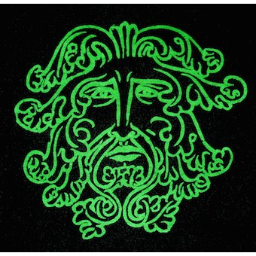I recently used the short phrase "shallow new greens" in a comment on a forum and was pulled up for being pompous. That's the trouble with throwaway comments; they often don't convey the intended meaning.
I can see how someone could take it that way so perhaps some expansion is in order. 'Shallow' refers to Arne Naess's late 70's distinction between shallow and deep ecology. It is not necessarily a value judgement - shallow seas are sometimes warmer and more benign to life than the deep ocean, a shallow wound can be less damaging than a deep one. 'New greens' would have been better written as neo-green as I was meaning not new members of the GPEW, some of whom certainly take a deep ecology perspective, but rather the general position of the latest incarnation of the political wing of the broad green movement in the UK.
In much the same way as New Labour was to many a betrayal of the founding principles of the Labour party, so neo-green might be seen as a betrayal of the deep ecology founding principles of the GP.
Originally (1972) there was PEOPLE and Movement for Survival, then the Ecology Party (1975), then the first Green Party UK (1985) which then re-invents itself about every 10 years (Green 2000 in mid 90s, the leadership debate in mid 00's and now the Progressive Alliance. (Although what is progressive about it or how you can have an alliance of one party is unclear and might be subject for another post). Each lurch has taken the movement as incarnated in its political manifestation further in a shallow ecology/green direction. Many people are very comfortable with this, but from a deep ecology perspective it looks like an attempt to have one's cake and eat it. In a different debate this is seen as a belief that an eco-technic future is a sustainable solution.
The post I was commenting on was about migration and the possible limits to it and refers us right back to the merger of PEOPLE and Movement for Survival in the early 1970s. Both founding groups of what became the broad UK Green Movement and the political GPEW saw a particular marker of unsustainability in an eco-system as being excessive population of one species leading to a decline in overall diversity and a weakening of resilience of the broad eco-system. In the fundamentalist//pragmatist debates within the Ecology Party in the late 70s the political pragmatists 'won' and the population variable in Limits to Growth became a bit marginalised in favour of the pollution and resources (and to a slightly lesser extent industrialisation and human food production) as the focus of attention.
Indeed population as a indicator of sustainability, and the related issues around migration have become topics which almost can't be mentioned, let alone discussed, in political green circles without a whole load of wallys attempting to close down debate on the basis that anyone who wants to talk about these important topics must have some kind of fascistic agenda and is therefore beyond the pale.
Which brings us to another feature of the current neo-green tendency - extreme intolerance. You must hate and be against and fight the Tories, the Trump voters, the Brexiters, the U-Kippers and whatever other group of the day is being blamed for the failure of the green movement to gain any traction. This is something that has grown with the increased prominence of socialist ideas in the movement - socialism has always tended to be the politics of hate (just as the right wing extremes are) whereas the ecology movement has understood that people are just living beings and hating them just because you think some of their ideas are wrong only demeans yourself.
Naess also some very interesting and relevant thoughts on principles, platforms, movements and practical action. One key element that has been lost since the early days is the openness to anyone to stand on the platform to catch the ecology train. We all may come from different places (ideologies) and be travelling for different reasons, but what unites us on the platform and can create an unstoppable movement is that we all see the direction of the ecology train as the right way to go.
Neo-green has introduced some really distasteful hate of other people - specifically the condemnation of people who vote Tory, or UKIP, or against the Capitalist Growthist EU, or who mention the population variable, or who eat meat, or still fly in aeroplanes, or think identity politics is a load of post-modern codswallop, or whatever the particular hobby horse of the day is.
Ecologism is about trying to see the whole picture and how all things are connected; seeing the forest and not just the trees. These people are living self-aware human animals too and without embracing them as part of our ecosystem and allowing their inner-ecologist to emerge the neo-greens will remain a dead-end self destructive niche.
Many deep ecology principled people have, unlike me, chosen to remain within the political wing and I wish them well - they may yet succeed in pulling the political party back from the brink of oblivion and reconnect it as part of a mass movement for ecology. Personally I doubt it and I find it more challenging and satisfying to work outside that bubble; there is only so much that anyone can do and we all have to make choices.
So describing the current position of GPEW as "shallow neo-green" is intended as an observation from outside and not an insult. Maybe it touched a nerve.


Comments powered by CComment